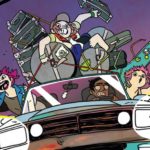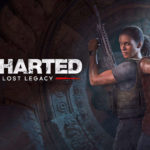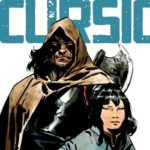The Epic of Gilgamesh
This World Literature series is for those of you obsessed, like me, with the origins of our current literature and its tropes. I have already written about the impact of World Lit in general and about satire in Candide. In this iteration, I will address how superheroes came into existence, blasting us to the ancient past with the first epic in history from Mesopotamia: The Epic of Gilgamesh.
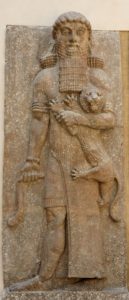
Gilgamesh was the King of Uruk at the time of the Third Dynasty of Ur in Mesopotamia. He was a real person immortalized in the form of poetry. If you wanna know more about him as a historical figure, you can start at his Wiki page. His story was exaggerated, which enhanced him to the point that he was practically a superhero. Gilgamesh in the epic has above-average strength and wit, and the narrative shows him as stronger and wittier than the Gods.
Who wrote the epic?
There are many theories as to what prompted the writing of the stories. One is that the neighboring king wanted to earn Gilgamesh’s favor and commissioned the epic. The other is that he was deified to the point where his origins became a myth. The story ended up permeating space and time and transferring to different areas and different languages.
The many translations are key to the development of the narrative since there are only two partially translated versions of the epic. There are two important versions of the epic: one is Akkadian and the other is Babylonian. The former was found in the library of Ashurbanipal in Nineveh in 1853 and the latter was found in different areas and states of disrepair.
Akkadian version
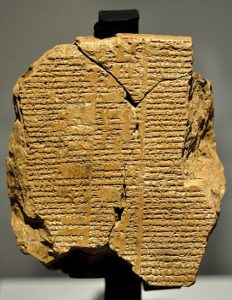
This version is the main story where the gods send a primitive man, Enkidu, and challenge Gilgamesh to become a better person and stop oppressing his people. The heroic Gilgamesh does not develop until he overcomes his aggressive behavior towards the masses. So, typical redemption story. The tyrant is sent someone who teaches him the value of being better and he is redeemed. Hence, the story of Gilgamesh is not only one of a superhero narrative but a villain’s redemption narrative.
The story of Gilgamesh reminds me of an amalgamation of characters, like Iron Man or Batman. Although they don’t have super strength, they were spoiled before having a life-changing experience that humbles them. They even become heroes comparable to gods. Gilgamesh is the same: a mortal man who was turned into a god, despite his failure in his quest to immortality.
What really solidifies Gilgamesh’s place as a Superhero is that the story is more important historically than the person it is based on.
Look at any superhero: their mortal persona means nothing to the masses. Their deeds as world-saving heroes are much more important in their fictional universes. Their symbolization of good prevailing over evil is more important to readers than their personal character. Hence why we have more action-ladened narratives than ones that explore a character’s life.
Although this lack of exploration of personal experience misses out on the domesticity of superhero lives, their heroics is what mythicizes them. We wouldn’t care about Superman if he was just an alien living his best life in Kansas. The hook is that he decides to be moral and save the city, the world, and then the universe. Gilgamesh becoming someone moral after his tyranny to the extent that he rejects actual deities who hit on him is the hook.
The Effect of Gilgamesh
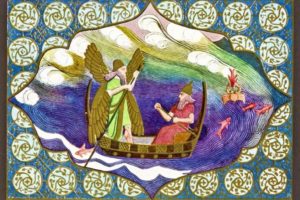
The Epic of Gilgamesh isn’t as exciting a read as the contemporary superhero narratives (unless you are a history and literary nerd). This is especially true since parts of the narrative are actually lost due to the passage of time. Despite the fact the relic was only discovered in the mid-17th century, the story can explain humanity’s early fascination with superheroes.
Our love of superheroes and their stories aren’t new. Humanity has always looked for a beacon of hope. This beacon tends to be a hero in literature. The hero tends to be infallible, moral, and able to learn and grow. The character can have flaws too. Look at your favorite superhero, can you find the flaw? Is it alcoholism, naivete, brutality, leaving their mental illness untreated*, brutality … etc? For Gilgamesh, his biggest flaw was his ego, but in the end, he was able to muster enough humility to stay mortal.
So, the themes we are now familiar with like anti-heroes or hero’s journey do not actually stem from the Greeks or Egyptians but from Mesopotamia to the extent that there are parallel motifs from the Bible such as the flood. Yet, it wasn’t until Post-WWI that the world became familiar (to a limited extent) with the epic. Moreover, it wasn’t until after World War II that people acknowledged using the epic as an influence.
The Present
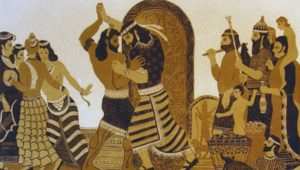
Beyond hoping that this article might influence you to read the Epic of Gilgamesh, I hope this would change or expand your list of influences. I hope y’all go read it and see why this is so important to World Literature, beyond what I have said. I mean, how many times can we say that a book we’ve read can be found in pieces in various museums under antiquities and not in the library section?
Also, I really hope Marvel or DC or some indie comic book writer would turn Gilgamesh into a contemporary superhero. I mean, we already have so many Hercules! Let’s change it up from Greek and Roman to some Mesopotamian characters.
Hope you enjoy this series & my opinion on the Epic of Gilgamesh and please tweet @roguesportal using #worldliterature with your suggestion and/or opinion!
Or hit me up in the comments section!
Love and Peace.
*I don’t mean to imply that mental illness is a character flaw. Leaving mental illnesses untreated when can afford the treatment could be considered a flaw.

